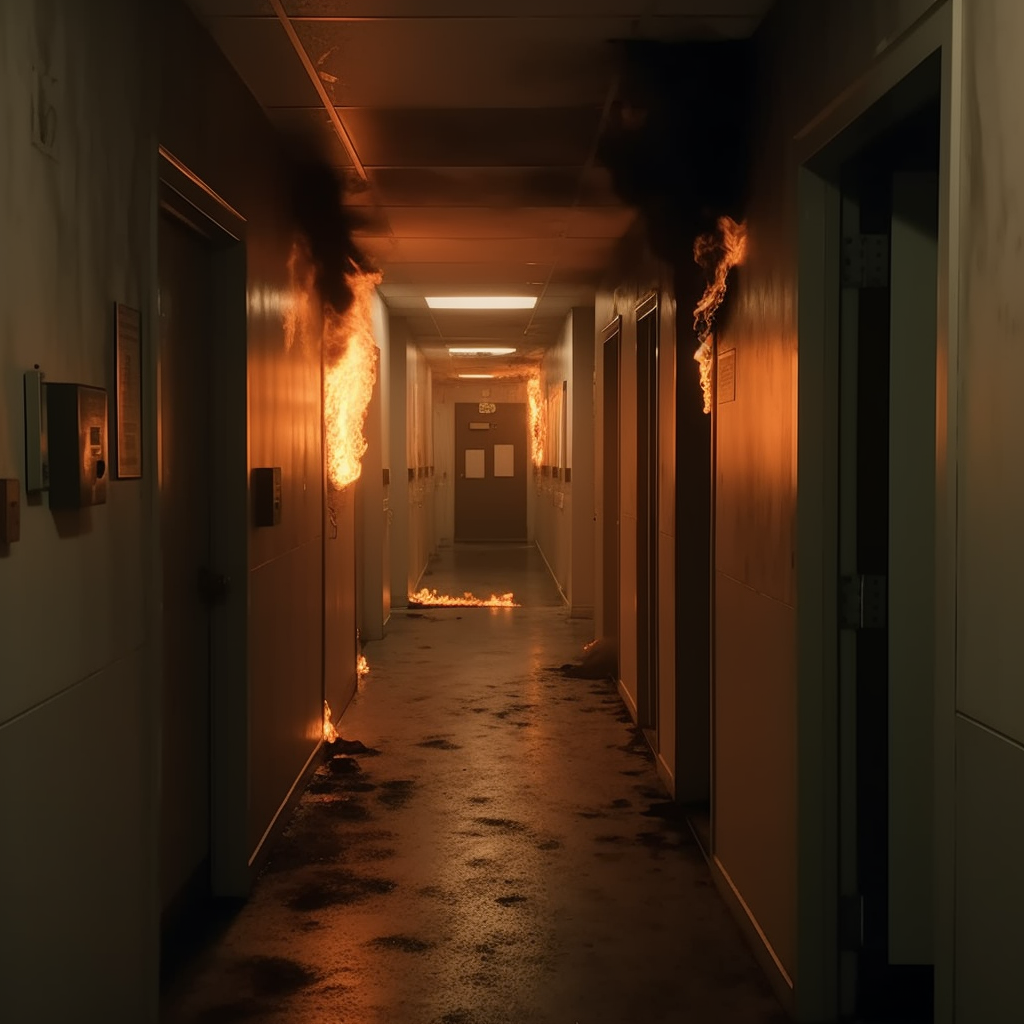Top 5 Most Serious Injuries with Difficult Recovery Processes

A person’s life can change drastically in the blink of an eye, all because of another person’s choices, like driving or boating recklessly or failing to maintain a safe workplace. When facing recovery from a potentially life-altering event, it’s time to talk to a catastrophic injury law group.
Ward and Smith is a personal injury law firm with experience helping individuals recover from life-changing, catastrophic injuries. Our personal injury lawyers can help you access what you need to treat traumatic brain injuries, spinal cord injuries, paraplegia, quadriplegia, severe burn injuries, and amputation.
Recovering from a severe injury can be mentally, physically, and financially challenging. A person will likely spend years managing their pain and other chronic and mental health conditions, which can be a costly and lifetime investment. We can help you better understand these complicated injuries and the legal options that may best serve your needs.
Read on for some of the most serious injuries and the potential legal options for recovering compensation.

1. Traumatic Brain Injuries
The brain is a well-spring of human feelings, behaviors, and experiences. It’s the epicenter of long- and short-term memory and self-awareness. The brain processes tens of thousands of thoughts a day. From repetitive to sophisticated tasks, the brain controls breathing, communication, motor skills, hunger, and more — essentially every process that regulates the body.
A traumatic brain injury, or TBI, causes the brain and the body to essentially stop working together. This can significantly impact how a person thinks, acts, understands, moves, and feels. Events like a slip and fall accident, firearm-related injury, a car crash, or an assault can cause severe brain injuries.
Physical symptoms of a TBI can include:
- Temporary or short-term memory loss
- Speech and swallowing difficulties
- Difficulty controlling bladder and bowel movements
- Balance and coordination problems
- Weakness or paralysis affecting one side of the body more than the other
- Sensory impairment
- Uncontrolled tremors
- Problems with executive functions, like planning, cognitive flexibility, abstract thinking, inhibiting inappropriate actions, and more.
Many people with a TBI struggle to return to their pre-injury baseline, and rehabilitation may take months or years. Talking to a traumatic brain injury lawyer like those at Ward and Smith can help you understand options for accessing compensation to pay for past and future treatment and other expenses.
2. Spinal Cord Injuries
The spinal cord is a set of nerves connecting the brain and body. It communicates motor commands from the brain to the body, sends sensory information, and coordinates a person’s reflexes.
How does a spinal cord injury affect the brain?
Sports injuries, motor vehicle crashes, or slip and fall accidents can disrupt how the brain sends messages to the body through the spinal cord. This disruption can hinder sensory function or the motor control of arms, legs, or other body parts. A lifetime of chronic pain can also be a possibility.
The American Spinal Cord Injury Association measures the level of spinal cord injury based on the sensation a patient can feel and motions they can or cannot perform. Injuries are graded on a scale from A to E, from no sensory or motor function to some preservation of motor function to normal sensory and motor functions.
Can a Spinal Cord Injury Heal?
Complete or “A injuries” are higher on the spinal cord and rarely heal. There is a greater chance of recovery with B-, C-, and D-type spinal cord injuries and neck or lumbar spinal cord injuries. The first six months after a spinal cord injury are telling as to the possible long-term prognosis.
Healing from this type of severe injury can be costly, painful, and time-consuming: Talk to a spinal cord injury lawyer to find out more about your options for covering medical treatment and similar losses.
3.Paraplegia or Quadriplegia
When a sensitive area of the spine or neck is bent or compressed, it’s difficult to know how the body will react. Paralysis is a possible outcome.
What is Paraplegia and Quadriplegia?
Paraplegia is a specific type of paralysis that affects the legs and lower body. Quadriplegia is a symptom of paralysis that affects the limbs and body from the neck down.
Individuals with paraplegia cannot move the lower parts of the body (such as the toes, feet, legs, and sometimes the abdomen). It is essentially paralysis from the waist down. Quadriplegia or tetraplegia impacts all four limbs and the torso, meaning a person has significant paralysis below the neck, and many are unable to move.
Birth injuries, violent acts like fire-arm incidents, motor vehicle or boating accidents, and sports injuries can cause different types of paralysis that impact an individual’s quality of life. Effects may include no longer controlling their bladder, bowel, temperature, or sexual function, among other things. Sometimes, secondary complications of paralysis can be life-threatening.
In the wake of paralysis, a serious injury attorney can be someone’s best resource for accessing funds to cover physical therapy, loss of wages, and more.

4. Severe Burn Injuries
Flame burns caused by contact with intense heat from a serious motorcycle, car, or commercial truck collision or a building fire can lead to third-degree burns that destroy the skin and permanently destroy tissue.
Severe burns are prone to additional complications, such as infections and scarring, so healing takes time. Dead tissue needs to be removed, followed by skin grafting and other forms of surgical reconstruction, which can be a painful process. Deep wounds and burn injuries that affect tissue below the skin might require amputation.
Ongoing surgeries and rehabilitation are often part of the recovery plan. Still, the scarring and disfigurement caused by the accident can lead to a lifetime of managing mental health disorders and other chronic health issues.
A severe burn injury may put patients more at risk of the following:
- Anxiety
- Depression
- Post-Traumatic Stress Disorder (PTSD)
- Musculoskeletal Disorders
- Gastrointestinal Disease
- Nervous System Disorders
- Increased Risk of Cancer and Cardiovascular Disease
Talk to a burn injury lawyer if you were injured in a fire caused by another party. You may be entitled to compensation.

5. Injuries Requiring Amputation
When a severe accident destroys a person’s tissue or cuts off blood flow for an extended period, a doctor might recommend amputation.
There are two types of amputation:
- Traumatic amputation: The loss of a body part, usually a finger, toe, arm, or leg, after an accident or injury. For example, a car accident victim might require a traumatic amputation if their leg was stuck under the vehicle and the weight cut off the blood flow to the leg.
- Surgical amputation: The removal of a body part, like an arm or leg. A person with a catastrophic injury might plan a surgical amputation if they know they are having complications with a body part and the tissue is dead.
Many different scenarios might require amputation. Serious injuries that require amputation might include:
- Motor vehicle collisions
- Workplace accidents
- Medical malpractice (like surgical errors or misdiagnoses)
- Explosions
The long-term implications of this catastrophic personal injury can be harrowing: Call an amputation injury lawyer to find out how to get on the road to recovery.
What Are Treatment Options for a Catastrophic Injury?
Catastrophic injuries are different from other injuries as they often require months or years of intensive treatment. Catastrophic injury lawyersare no strangers to cases involving traumatic brain injuries, amputations, scarring and disfigurement, and spinal injuries.
Various treatment options can help with severe injuries, from surgery to rehabilitative care.
- Surgery is often required to graft skin, amputate limbs, or fix broken limbs.
- Medication can help with pain relief, mood disorders, anxiety or depression, and other mental health issues, or seizure and infection prevention.
- Rehabilitative care, such as physical, occupational, or speech therapy, offers patients ongoing sessions to help improve mobility, range of motion, communication, and more.
A Serious Injury Lawyer Is Here to Help
Catastrophic injuries are in a category of their own. The harm they cause isn’t limited to one impact — but many. A dangerous workplace, a surgery gone wrong, or a careless boating accident can result in an individual losing their ability to work or racking up serious debt from medical and other necessary expenses.
Accidents and catastrophic injuries can also lead to a loved one’s wrongful death. In those tragic cases, a personal injury lawyer can see to it that you receive fair compensation to cover funeral arrangements and future living expenses.
Ward and Smith is a leading serious injury law firm. Our seasoned personal injury attorneys can help you navigate the trickiness of life after a catastrophic injury. From reviewing your legal options to finding the right medical help and financial resources, we are dedicated to helping victims heal.
Contact our firm today to schedule a free consultation regarding your case.
—
© 2024 Ward and Smith, P.A. For further information regarding the issues described above, please contact Lynwood P. Evans.
This article is not intended to give, and should not be relied upon for, legal advice in any particular circumstance or fact situation. No action should be taken in reliance upon the information contained in this article without obtaining the advice of an attorney.
We are your established legal network with offices in Asheville, Greenville, New Bern, Raleigh, and Wilmington, NC.
Featured News
View All
